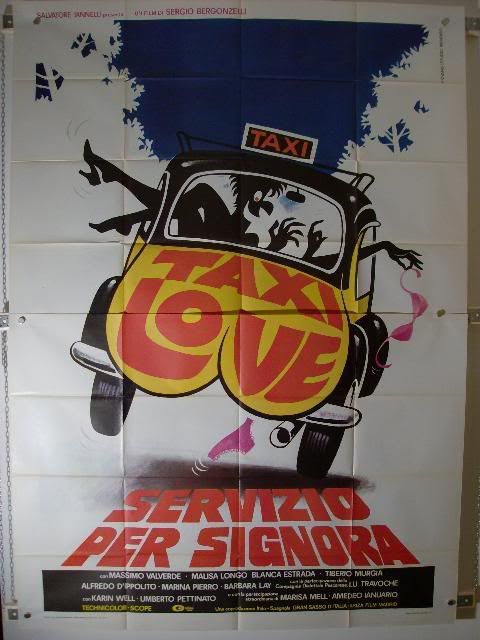Me gusta mucho contar esa historia sobre los eskimales, que tienen muchos nombres para el color blanco, lo cual significa que pueden distinguir entre numerosas tonalidades porque, en realidad, no existe un sólo color blanco, como indica nuestro idioma, sino muchísimos, y son todos diferentes, y además cambian según la luz que reciban.
En nuestro idioma (o, debería decir, idiomas, al menos los de origen latino, y otros de la vieja Europa), existe también una sola palabra para denominar una experiencia que es siempre distinta: amor.
Si usáramos distintas palabras para nombrar las distintas tonalidades de color blanco, tal vez podríamos aprender distinguirlas con mayor claridad. Y entonces tal vez el paisaje del amor se volvería más rico, menos nebuloso: tal vez el tránsito por él se volvería entonces más placentero y múltiple.
Maybe, we would then truly be in the position to embrace diversity.
"...to enclose the present moment; to make it stay; to fill it fuller and fuller, with the past, the present and the future, until it shone, whole, bright, deep with understanding."
Virgina Woolf, The Years
23.12.11
14.12.11
Las horas IX - To Squeeze the Universe into a Ball
Do I dare
Disturb the Universe?
And how should I begin?
And should I then presume?
Should I, after tea and cakes and ices,
Have the strenght to force the moment to its crisis?
And would it have been worth it, after all,
After the cups, the marmalade, the tea,
Among the porcelain, among some talk of you and me,
Would it have been worth while,
To have bitten off the matter with a smile,
To have squeezed the universe into a ball
To roll it towards some overwhelming question,
To say: "I am Lazarus, come from the dead,
Come back to tell you all, I shall tell you all."
No! I am no prophet. I am not Prince Hamlet.
Am an attendant Lord; almost, at times, the Fool.
Would it have been worth while
If one, settling a pillow by her head,
Should say, "That is not what I meant at all;
That is not it, at all."
Fragmentos de "The Love Song of J. Alfred Prufrock", de T. S. Elliot.
Disturb the Universe?
And how should I begin?
And should I then presume?
Should I, after tea and cakes and ices,
Have the strenght to force the moment to its crisis?
And would it have been worth it, after all,
After the cups, the marmalade, the tea,
Among the porcelain, among some talk of you and me,
Would it have been worth while,
To have bitten off the matter with a smile,
To have squeezed the universe into a ball
To roll it towards some overwhelming question,
To say: "I am Lazarus, come from the dead,
Come back to tell you all, I shall tell you all."
No! I am no prophet. I am not Prince Hamlet.
Am an attendant Lord; almost, at times, the Fool.
Would it have been worth while
If one, settling a pillow by her head,
Should say, "That is not what I meant at all;
That is not it, at all."
Fragmentos de "The Love Song of J. Alfred Prufrock", de T. S. Elliot.
13.12.11
This heaven gives me migraine
... and natural's absolutely not in it.
1.12.11
Taxi Chronicles - Taxi driver's views on love
I. Lo que una mujer necesita
Toca el claxon y hace seña de que me acerque. Súbale señorita. ¡Ay, muchas gracias señor! Es que dije, si no la lleva el otro pues ya la llevo yo, es que llevo prisa, quiero llegar a ver la pelea. Pero era a las 9:30 no? Ese, estoy segura, fue el principio de la conversación. Después, tal vez por aquello de los deportes, me empezó a contar cómo correr lo salvó del alcoholismo, ahora corre maratones, todos los días se levanta a correr 25 kilómetros, y su lugar favorito es el Bosque de Tlalpan. Tuvo un maestro que le enseñó a correr bien y sin lastimarse. Y después comenzó a hablar de su pareja, es más chica que yo, como veinte años, andaba con otro pero lo dejó para venirse conmigo. ¿Sabe? Es que lo que una mujer necesita es que la quieran, nada más, que la quieran.
II. El defecto de la mujer
Gracias, buenas tardes. Buenas tardes señorita ¿a dónde la llevo? Oiga, pero, ¿tendrá cambio de a doscientos? Claro, pero si no van a ser menos de ciento cincuenta. Waka-waka, pensé. Y luego no sé cómo llegué a la frase Nunca he tenido la suerte de subirme con una mujer taxista. Qué bueno. El día que se suba, bueno, va a ver, e hizo una seña que de una u otra forma remitió a deficientes habilidades de manejo. Ay ya, no es cierto, dije yo. Mire, mis dos hijas han manejado taxis, las dos, y son buenas, pero bueno, las mujeres pa' manejar... y reiteró su opinión al respecto. No, mire, yo admiro mucho a la mujer, la admiro mucho, yo creo que las mujeres son muy inteligentes, muy inteligentes, pero tienen un defecto: enamorarse.
Suscribirse a:
Comentarios (Atom)
